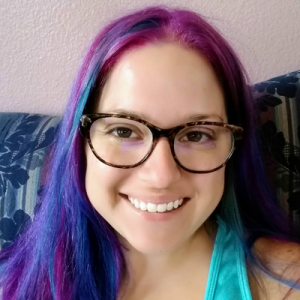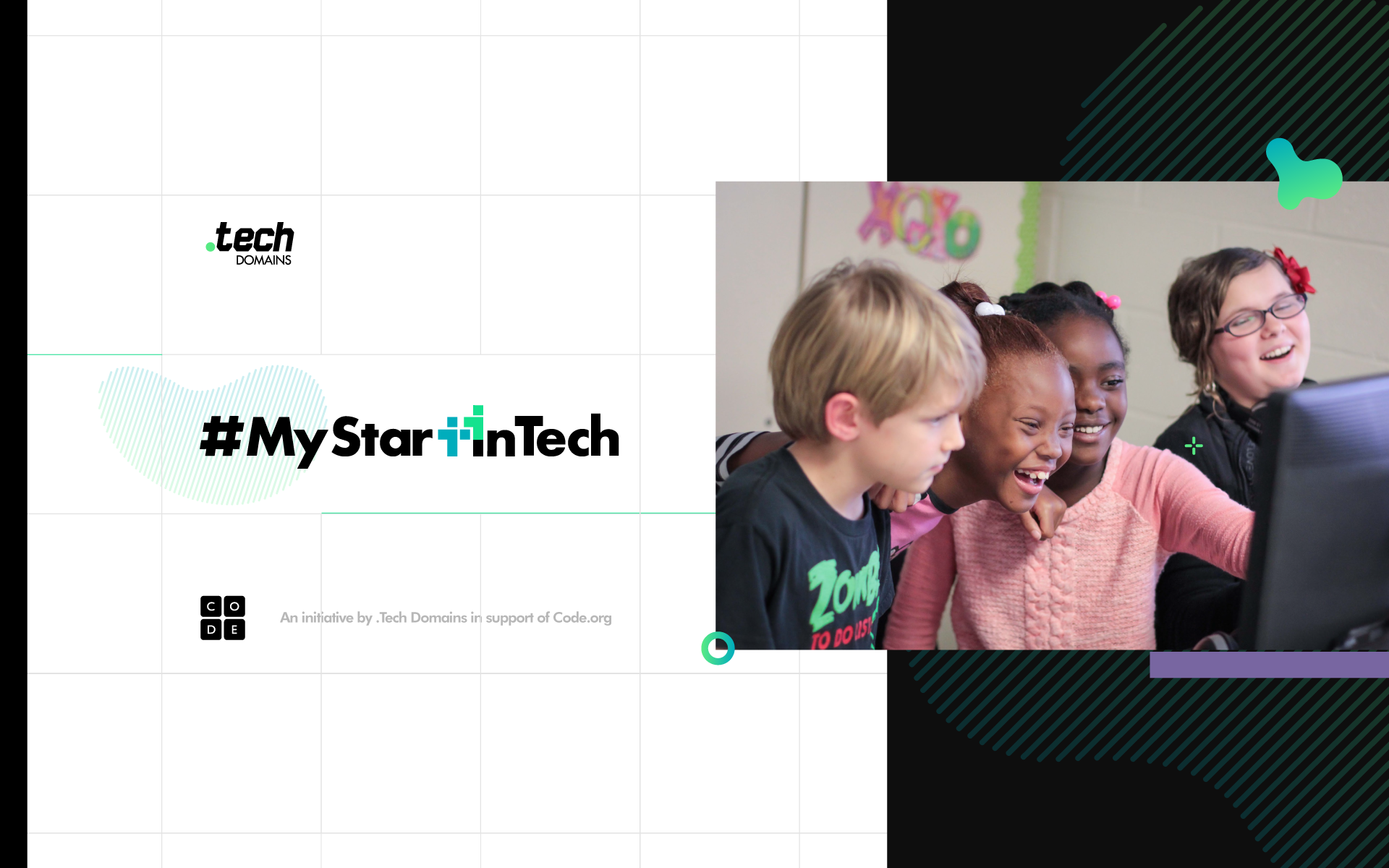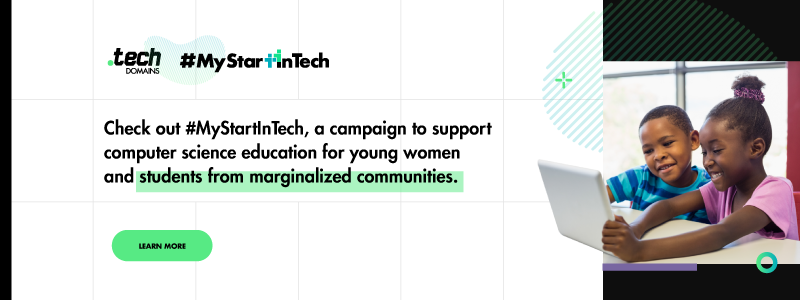The tech workforce in the US is not growing at an optimal pace. The number of schools offering computer science is not enough which is impacting the access of computer science to young women and students from marginalized communities.
The truth is that there are over 410,020 open computing jobs in the US but only 71,226 computer science students graduated into the tech workforce last year.
This is because only 47% of public high schools in the US offer computer science which deeply impacts its access to young women and students from marginalized communities.
To address this pressing issue, we have launched #MyStartInTech, a campaign dedicated to drawing attention to this cause and in turn, help widen access to computer science in schools.
As part of this campaign, we present the #MyStartInTech interview series where some of the esteemed tech entrepreneurs and professionals in the industry share details about their journey in tech. With this, we hope to draw attention to the infinite opportunities that will lay open if young women and students are given the opportunity to study computer science.
In this interview, Audrea Cook, Software Engineer at Raise.dev talks about how she got her start in the tech world.
Audrea is an enthusiastic full-stack software engineer with a heart for effective communication. She pursued a wandering career path throughout her twenties and explored multiple industries and positions, all rooted in customer service and communication. As a result, she defined her purpose, honed her expertise, and discovered what brings joy and fulfillment into her professional life.

Let’s find out what she has to say!
When was your first interaction with Computer Science?
I was one of the lucky ones in my high school to land a slot in the coveted web design class, which was only offered once a year. I was one of only three or four girls in the room. We spent the first week or so learning HTML and CSS basics, but I was disappointed when the teacher began extolling the virtues of WYSIWYG editors, which I (correctly) doubted I would ever use outside that class. I assumed my parents would never agree to spend money on web design software; why work hard building something as intangible as a web page? That was a hobby for nerds.
Except, I am a nerd. I’ve always worn that badge with pride. I found myself immensely frustrated with my web design class because I just wanted to look at the code! If I wanted to play “Drag and Drop,” I’d just muck around in PowerPoint. Ultimately, I wound up creating a project in class, saving screenshots of the layout to my handy dandy floppy disc, and then puzzling over how to recreate the pages at home in Notepad. My crowning achievement was a hideous “Animals A-Z” site with red text on a yellow background. Clearly, we didn’t learn anything about accessibility (or taste) in that class.
I continued to teach myself HTML and CSS by building Myspace profiles and Neopets pages. This was my first real entrance into the tech community, and I quickly realized there were multitudes of people on the Internet willing to help me learn; I just needed to ask.
What nudged you into taking up a career in technology?
For the longest time, I figured I could learn a bit of coding as a hobby, but it would never become a career. When I pictured a software engineer, I imagined a white man, your standard “tech bro,” 100% of the time. We all know about Gates, Jobs, Zuckerberg, and their ilk, but the media spotlight rarely seems to shine on more diverse role models in tech.
In 2019, I traveled on a business trip with my husband to Silicon Valley. I was in the middle of a disheartening job search pursuing any position I felt I was remotely qualified for, despite the fact I wasn’t actually interested in a single option before me. I figured I needed to have a job to make ends meet, but it was unrealistic to expect I could make money and feel passionate about what I did. I could have one or the other, but not both.
The first day we were in California, we had dinner with my husband’s team. I met some very bright, extremely passionate software engineers, and half of them were women! Suddenly, I saw a new option. Here were these brilliant, kind, and unbelievably inspiring women living the dream.
When I expressed my envy, one of the ladies at the table asked, “What’s stopping you from joining us?” I realized I was the only real obstacle in my way. Within two weeks of that trip (and with my husband’s unwavering support and encouragement), I postponed my job search and enrolled in Flatiron School’s full-time boot camp. The rest, as they say, is history.
What are your earliest memories of using a computer in school?
I distinctly remember the rush of excitement I got any time my elementary school computer teacher instructed us to boot up the computer in DOS mode. DOS meant we weren’t spending the class making WordArt or practicing using the home row. Oh, no. We were playing computer games, baby! I dominated Number Munchers, but like many a 90’s kid, Oregon Trail absolutely destroyed me, usually with a broken axle or a bout of scarlet fever.
What is the importance of technology to you now and how does it impact your day-to-day life?
Technology is an integral part of my life. During the workday, I obviously focus on learning and writing code. I love that I get to spend my day solving challenging problems, squashing bugs, and leveling up my technical skills. It is so rewarding to be part of an industry that fosters creative thinking and lifelong learning.
In my downtime, I typically engage with one form of tech or another. I use the wonder that is my smartphone to track my health, check out new books from the library, and find patterns and resources for my next crochet project.
Video chat is perhaps the most meaningful form of technology in my life, particularly in the last year. With loved ones spread across the globe, I am beyond thankful for the ability to explore with my brother as he walks around the UK, to sing and dance with my niece and nephew in Georgia, and to judge for myself just how much my mom was faking when she said “I’m fine, really,” while recovering from a thankfully minor bout of COVID-19.
How important is it to increase access to computer science and technology to underrepresented communities and young women today?
As I mentioned before, I never imagined myself in a technical role. I simply couldn’t see people who look like me being successful in this industry. Of course, now that I have spent a few years as a member of the tech industry, I understand just how wrong I was.
Now, I realize there are countless women, people of color, and members of the LGBTQIA+ community who are also fantastic role models in tech. To broaden diversity in our field, we need to feature and celebrate these individuals so curious onlookers can see themselves as the next big founder, software engineer, designer, or tech innovator.
It’s no secret the tech industry struggles with equal representation. By excluding women and underrepresented communities from computer science and technology, we not only do a great disservice to them, but we hinder the growth of the tech community as a whole.
Imagine how bright our future will be if the best and brightest individuals from all perspectives and walks of life have the same opportunities to create and innovate in tech! The possibilities are endless.
Why do you think access to computer literacy in school is important?
The thing is, kids are sponges; they have an impressive ability to absorb knowledge. Given the right environment and support, it is amazing what students will learn and create. By providing early access to computer literacy, students are exposed to a world of new opportunities. Some of these kids will grow up to be our next big tech superstars, but studies show that simply incorporating technology into a lesson increases student engagement across the board, meaning our future doctors, teachers, and everything-elsers will be better prepared to pursue their passions, as well.
Prior to my entry into tech, I was a second-grade teacher at a low-income public school. Many of my students lacked internet access at home and shared a single device (usually Mom or Dad’s cell phone) across the whole family. Their only real exposure to computer literacy was through school, and we, as educators, were failing them. Our “computer labs” were two overheated rooms with old, slow computers, many of which didn’t work at all. In my second year at the school, we scrimped enough money from the budget to afford a computer literacy teacher, an entirely new position. That role was, unfortunately, the first to be cut the following year due to budget constraints.
This was a huge eye-opener for me. I knew inequality was a problem in America, but it didn’t hit home until I saw an entire school being denied learning opportunities in what I foolishly assumed was a core content area in the 21st Century. It is appalling that the students on one side of town have monthly STEM days, computer literacy enrichment, and a 1:1 device ratio while equally brilliant and imaginative kids on the other side of town are forced to do without, all based on their socio-economic status.
A popular phrase in education is, “We’re preparing students for careers that haven’t even been invented yet.” Common sense tells us the bulk of these careers will be at least tangentially related to the tech industry. How are teachers supposed to prepare their kids for this exciting future without actually giving them access to computer science and technology? If we ever hope to close this inequality gap between the status quo and underrepresented communities, it is vital we start in the schools.
What do you think about .Tech Domains taking up this cause?
I am thrilled to see .Tech Domains championing access to computer literacy. The sad truth in America is that public school teachers often take up this burden alone, donating their time and paying for supplies out of their own pockets. My greatest hope is other companies in our industry will be inspired by .Tech Domains’ actions and find ways to contribute to the cause in their own communities and across the globe. When our children succeed, we succeed.
What advice do you have for women and members of underrepresented communities just starting out in tech?
Embrace the discomfort of not knowing and adopt a growth mindset. I’m wrapping up my first role as a professional software engineer with Raise.dev, and the greatest lesson I’ve learned thus far is that none of us know all the answers, and we all have something to teach one another. Your greatest asset will be the tech community itself. Reach out.
I know this might sound scary. Being vulnerable, especially with total strangers, goes completely against our self-preserving instincts. I’m right there with you. As I’m looking to take the next step in my career, my gut says to put on a bold face and “fake it ‘til you make it.” I encourage you to join me in resisting this urge. Lean into those edges of your knowledge. Be honest about what you know and express a willingness to learn. The community will lift you up. We want to see you do well because we know your success and participation in tech will only enrich the community.


